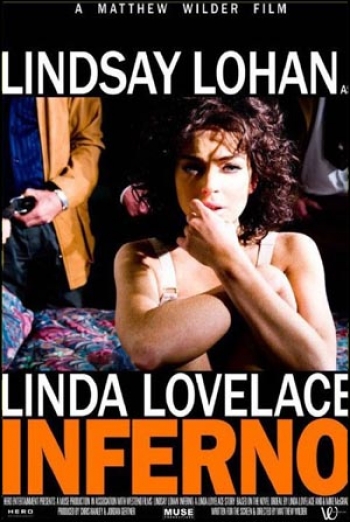

Ban on Movie Futures Trading an important step in protecting a vital national industry
The recent financial reform bill that passed the House and Senate was so important that even the people who created it don’t know exactly what it will do. And we can debate all day what’s the most important part of the bill, but I’d like to suggest that it’s the ban on the despicable practice known as “Movie Futures Trading” (MFT) that will have the most positive affect on the country.
MFT is the process by which people bet on how much money a work of art — a film — will “earn” at the box office. Much as the stock market speculators nearly caused the collapse of our entire financial system, so to does this crass gambling enterprise threaten the very foundation of an industry that is vital to our economy and to our standing in the world. Interim MPAA president Bob Pisano put it best when he said:
“After proposals for these speculative gaming platforms came to light, our industry came together to oppose these plans with an unprecedented coalition that included entertainment industry workers, creators, independent producers and distributors, studios and theater owners. We are pleased with final passage of this important legislation. Congress has acted decisively to ban proposed trading in box office futures and to make important reforms in the country’s financial regulatory system. We applaud the work the bill’s authors have done, and of course, the many Senators and Members who supported the provisions to prevent movie futures trading.”
Essentially, it encourages people to “root against” certain films — films produced by studios that already have a hard time ensuring their products make money.

There might be no way of accurately measuring the negative effect that Movie Futures Trading could have on Mel Gibson’s upcoming film, “The Beaver.”
I realize that MFT might be difficult for those who live outside Hollywood to understand. Therefore, I will explain the danger in terms easily understood by Middle Americans. Suppose you went to the Nascar match, and you placed a bet on who would win. You might think, Well, what (“whut”) is the harm in that? They are (“Their”) going (“gon'”) to play the match anyway, and I am going to the 4H fairground to watch, so why not make a little money off it?
But now imagine that, right before the Nascar match started, you went to Walmart and used a squirrel-hunting gun to murder the mother of the most popular Nascar player. Now imagine that, just before the match started, the announcer came over the loudspeaker and (just before announcing the latest prices of deep-fried twinkies), he declared, “Jim Bob Podunk’s mother has just been killed (“kilt”) at the Walmart.” But rather than drop out, Jim Bob stays in the game out of a sense of duty to the fans — like a George Clooney character in a politically charged thriller.
However, because he is crying over the loss of his “dear ol’ Momma,” his eyes fill with tears and he commits a terrible tragedy that affects all the other Nascar players. Then there are a dozen casualties, and all those players and coaches and what have you lose their jobs, and their copyrights are violated by piracy.
You can see how this affects us all, not just those of us in the entertainment industry. And in a recession, the last thing we need is people making money off the failures of others.
Think about it: we help desperate homeowners who have fallen on hard times, to ensure they don’t lose the homes in which they live their versions of the American dream — many of them Nascar fans themselves. We do this because it makes sense economically, and morally. If we allow people to default on their mortgages, the domino effect on the rest of our society could be catastrophic.
We wouldn’t allow “Default mortgage futures trading,” in which I could bet on my neighbor missing his mortgage payment and defaulting on his home, would we?
Of course not. We are better than that. As a people.

Movie futures trading could harm the potential box office success of Lindsay Lohan’s upcoming Linda Lovelace biopic.
To be sure, the MFT ban is a good first step. But naturally I would like to see the government do more to help protect vital American jobs, by banning other practices that negatively impact the entertainment industry. For instance, those “weekend box office predictions” at such irresponsible websites as boxoffice.com, Nikki Finke’s Deadline Hollywood Daily, The Wrap, and Box Office Guru create perceptions of failure even before a movie opens. If a film doesn’t “track well,” a confused public might be under the mistaken impression that a film isn’t worth their patronage.
When a movie, any movie, fails at the box office, we’re all a little poorer for it.
Furthermore, the so-called film critics that openly criticize films can also create the illusion that a film isn’t worth seeing. This dangerous practice is causing some films to make less money than they would otherwise.
Naturally, I would not want to violate anyone’s First Amendment rights. But I do believe that the government can empower the industry by using certain tools to help put an end to speech that negatively impacts American jobs. For instance, there are some films, such as “Toy Story 3,” and “Inception,” that most film critics agree are of very high quality, and worth audience patronage. Yet there are some film critics, most notably Armond White, who seem to want nothing more than to be contrary, and to attempt to persuade people not to pay to see these films by writing unnecessarily negative reviews that fly in the face of popular sentiment.
A “Rotten Tomato Law” would provide for the removal of negative reviews of films that have an aggregate critic score higher than 80%. The same would apply to films with lower scores, as well. Critics would be encouraged to write more positive reviews, to help get a film’s rating into the “certified fresh” range. These films should be supported by everyone, as their success is vitally important to our economy. After all, if a lighting man is out of a job, he cannot purchase the breakfast oatmeal that is manufactured in those states where they grow corn.
Such a law would benefit the critics themselves, as they would be helping to promote the very product about which they write. As the product’s popularity increased, so to would their relevance and, therefore, their income.
In an uncertain world in which the American economy is suffering, the entertainment industry has shown itself to be a rare bright spot. They haven’t even required a bailout. However, as dynamic and vital as the entertainment industry is, it is also a fragile animal that needs protection. Once again, I salute our government for taking a proactive stance in its protection of a uniquely American industry. This first step is necessary, and I can only hope that it leads to even bigger steps down the line.

Movie Futures Trading might make it impossible for a future release from Roman Polanski to turn a profit.
Latest posts by Ricky Sprague (Posts)
- Meet the start-ups that are thriving in the current economic recovery - May 27, 2016
- How a Wonder Woman comic from 1942 led to the Great California Cow Exodus of 2012, maybe - November 28, 2012
- A common-sense approach to restoring economic prosperity - November 19, 2012
- New Philip K. Dick novel too absurd to be believed - September 17, 2012
- My 90 Days, 90 Reasons submission - September 12, 2012
 Print This Post
Print This Post




What is really funny is that BoxOffice.com is the industry magazine and website for NATO (National Association of Theater Owners). Guess it is perfectly acceptable for NATO to try and sway public movie perception with their “box office predictions”, but heaven forbid the public actually attempt to form the exact type of estimates in a federally regulated, centrally cleared marketplace.
Then there is the argument by the MPAA that some rogue studio employee may release inside information that may tank a movie’s prospects, yet BoxOffice Magazine provides various subscription levels for inside advance movie buzz and predictions – as long as you’re willing to pay for it. Guess NATO doesn’t have an issue with inside information being released as long as they can make a buck off of it.
All of Hollywood. All of congress. Hypocrites to the last drop.
moviegeek23 — I didn’t realize that about Boxoffice.com.
Those people are even more brazen than I thought, and I’m pretty jaded.
What economic codswollp. I know you aren’t an economist so I guess the naive errors in thinking are to be expected. You write: “When a movie, any movie, fails at the box office, we’re all a little poorer for it.” And want regulations to prevent various methods by which consumers and investors express their judgments. You want economic censorship just as much as the Falwellians want censorship in general. Ban the bad information and everything will be peachykeen.
But that just isn’t the case. Films that fail do so because they don’t meet consumer demand. They take valuable resources and divert them to less valuable products instead of more valuable products. Failure makes clear to the studio that this genre, producer, director, writer (or what ever caused the failure) is a bad investment.
It gives them information that says avoid this error in the future. Long term avoiding such errors makes everyone richer.
Humans are not infallible and stinking films will be made, just a bad columns will be written, and knowing that they stink or are bad benefits us for future investments.
Bad films don’t deserve to be protected by the judgement of consumers. We shouldn’t ban the expression of those opinion through market activities any more than we should ban bad columns filled with economic nonsense.
“Naturally, I would not want to violate anyone’s First Amendment rights.”
Amen to that.
“But….”
Nevermind.
The only thing funnier than good satire is people who can’t identify satire.
I wonder if something like credit default swaps will one day be available to movie producers. That would probably give people the ability to bet on movies regardless of this ban.
@cls — Do you really think my bad column will help benefit future investments?
@Guido — Do you mean to imply that I don’t have a constitutional right to argue for limitations on the First Amendment?
@heller — I’m choosing to take that as a compliment!
@Colin — I’m more concerned about the discounted DVDs I’ve heard are available at Walmart (I don’t shop there, myself). Discounting the prices of films devalues the entire industry, and it must be stopped.
This is so pathetic it’s almost funny.
Or is it so funny it’s almost pathetic?